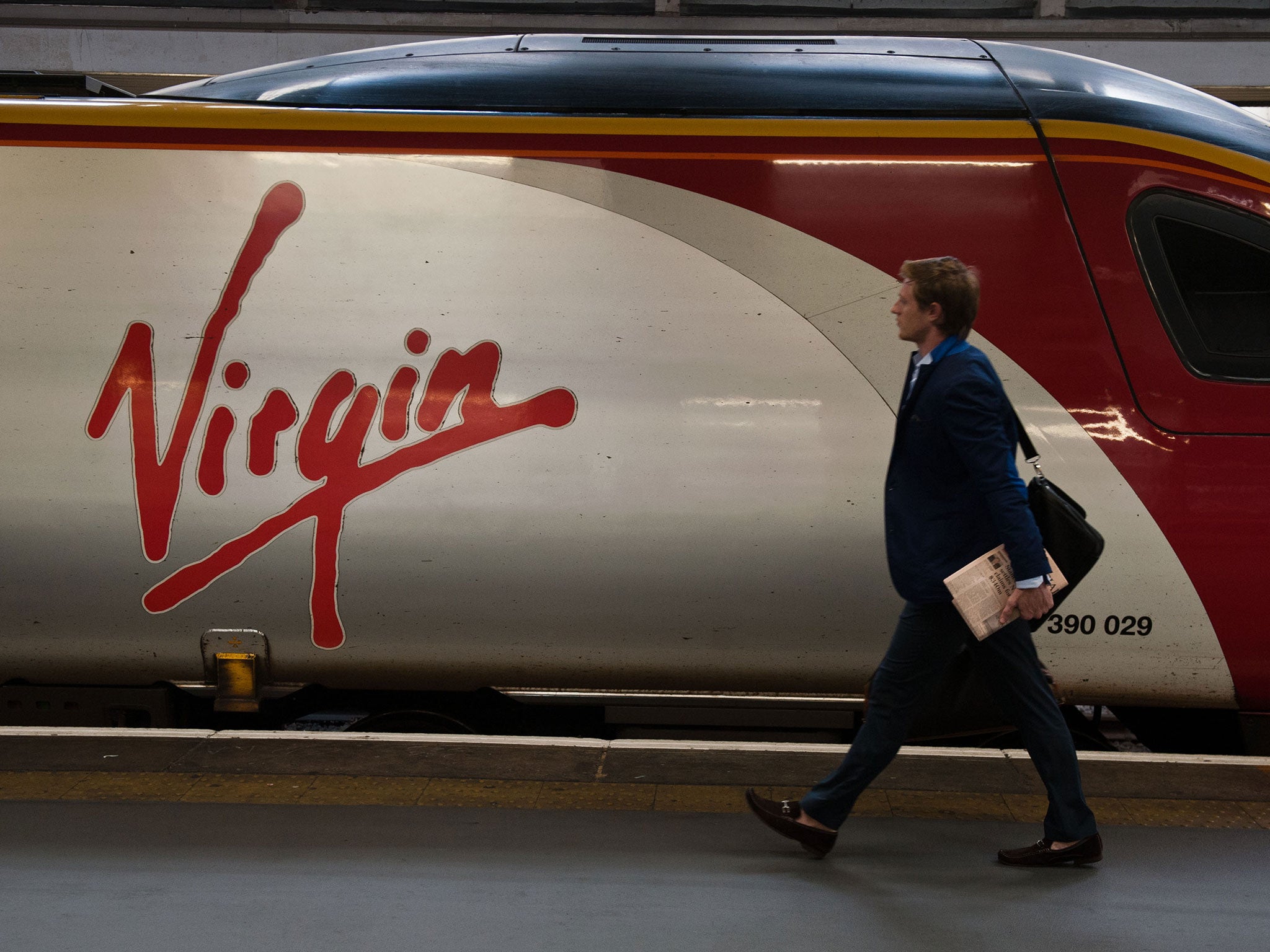The Business of Travel: class warfare on the rails
The DfT has begun a consultation on the West Coast Main Line, but what's the solution to overcrowding?

Your support helps us to tell the story
From reproductive rights to climate change to Big Tech, The Independent is on the ground when the story is developing. Whether it's investigating the financials of Elon Musk's pro-Trump PAC or producing our latest documentary, 'The A Word', which shines a light on the American women fighting for reproductive rights, we know how important it is to parse out the facts from the messaging.
At such a critical moment in US history, we need reporters on the ground. Your donation allows us to keep sending journalists to speak to both sides of the story.
The Independent is trusted by Americans across the entire political spectrum. And unlike many other quality news outlets, we choose not to lock Americans out of our reporting and analysis with paywalls. We believe quality journalism should be available to everyone, paid for by those who can afford it.
Your support makes all the difference.The most notable transportational success story of the past 20 years? Not Europe’s no-frills revolution in the skies, but the quotidian business of moving people around Britain by rail.
The number of passengers using our railways has doubled since the mid-1990s, and is racing ahead like a runaway train. This year the number of passengers should exceed 1.7 billion, which represents 5,400 people boarding a train every second of every minute of every day of the year. And sometimes it feels as though they’re all getting on the very same train.
For the planet, the fact that more of us are squeezing on board is largely a good thing: moving people from roads to existing train services is environmentally friendly. But if you subscribe to the Jean-Paul Sartre theory that l’enfer - c’est les autres (“hell is other people”), there is only one escape: First Class.
For the business traveller, First Class is not an indulgent frippery. Personal space and elbow room (and often free wi-fi that doesn’t oblige you to reveal mountains of personal data to sign up) can make the difference between a journey that must be endured, and a productive or simply relaxing spell. That helps explain why executives travelling from Liverpool to London, for example, are prepared to pay as much for a one-way trip as the cost of a budget holiday: £237. Yet that oasis of calm is being eroded.
The Department for Transport has just begun a consultation on the next West Coast Main Line franchise. The current edition, in the hands of Virgin Trains, expires in two years. But the consultation document spells out some serious worries about overcrowding (or mere “crowding”, as the DfT prefers to call it).
“Trains on some routes … are very busy,” it says, stating the painfully obvious. “High levels of crowding and difficulty moving through the train have been highlighted as key concerns for passengers.”
The solution may seem as plain as the problem: more trains and longer trains. But bear in mind that Britain has the world’s oldest railway network in the world; that the majority of the lines that you and I use were created in the mid-19th century; and that the UK's inter-city links are the most intensively used on earth. Squeezing any more in will be tricky due to “platform lengths and space within timetables and at stations to fit extra trains in,” says the DfT.
So what’s the Department's cunning plan? “Changing the balance of First and Standard Class provision on carriages.” In other words, one or two carriages on each train would be fitted out with many more seats. Such a move would increase the sum total of gross national happiness. But it wouldn't be to the advantage of First Class passengers, except in one occasional sense: reducing the frequency with which trains are “declassified”. When services get too (over-) crowded, a train manager may declassify the train. From that moment, any passenger can use First Class regardless of how much they have paid. When that happens, good luck finishing a vital report or taking a much-needed nap. But in general, any move to reduce crowding in Standard Class is bound to increase crowding in First.
The answer for hard-pressed business travellers: timeshift. Holding a meeting in London at 9am with people drawn from all over the country may sort out the serious from the slackers. But it will also cost the firm a fortune in peak-time tickets and deliver sleepy colleague who have had, in the weasly term sometimes used in the travel industry, a “sub-optimal journey”.
Make it 2pm, and everyone will converge having enjoyed an uncrowded journey (and, on Virgin Trains at least, a “free” lunch), while that £237 ticket price is better than halved to £115 - and, no, you don’t need to book in advance.
In time, the trains will surely follow the business model used by airlines, in which “dynamic pricing” is used to manage demand for every train. Until then, the solution is in your hands, or at least your calendar.
Join our commenting forum
Join thought-provoking conversations, follow other Independent readers and see their replies
Comments